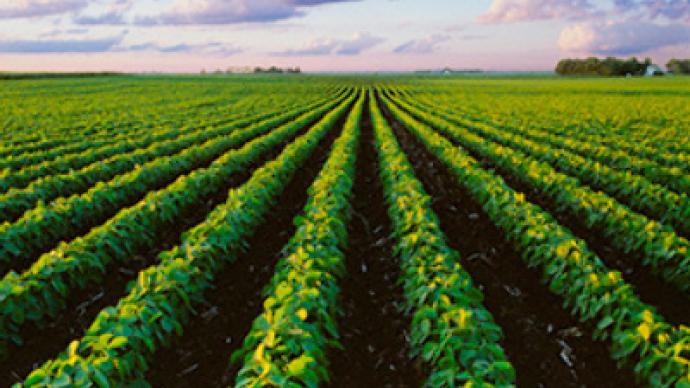Agriculture braces for longer term warming

This years drought is focusing concern on Russian agriculture, with crop forecasts being slashed, but meteorologists say climate change could make them a common occurrence.
Central Russia has seen over 70% of the grain harvest destroyed by the drought. But because Russia normally produces a surplus, and weather conditions have been closer to average in Siberia, the country won't experience a grain shortage this year.
However Aleksey Trubnikov CTO of Agriculture company says this might not always be the case if the summer heatwaves become a more permanent fixture, as some climatologists expect
"Rosselkhoz academy has published study suggesting that from late 70s to 2008 Russia enjoyed a cool period with plenty of rain. Now Russia is entering warm and dry phase, as the last 2 years prove, and it will last until 2026-2030."
The hottest years in this cycle are expected to come over the next five year. This could be enough to change the face of Russian agriculture, as farmers are unable to survive on the poor yield from their land.
Over a longer time scale, a prolonged period of dry weather is likely to force farmers to change their crops, turning Russia from grain producer into an agriculture that sows short-rain bean and soy crops.
The utilization of cultivated land for grain, which currently stands at 50 percent, could drop down to 20 to 30 percent. Indeed this process is already happening in some regions, according to Sergey Kiryushin, agriculture chief, at Russian Hektar Holding.
"After the last year droughts we already gave up most of the dry lands – on the left banks of the river, keeping cultivating the right bank, decreasing from 120 thousands to 40 thousands hectares."
Today's blistering temperatures might become the norm in a few years time if some climate change scientists are to be believed. The new weather conditions will inevitably force changes in agriculture as some crops become non-viable in previously fertile areas. With its vast plains, the south of the country may no longer be the bread basket of Russia, instead it might become a hill of beans, or even worse a dust bowl.












